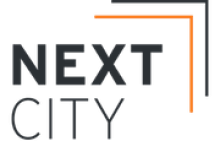Muni Fiber as Real Estate - Community Broadband Bits Episode 111

Hunter Newby is back for his second appearance on Community Broadband Bits to discuss his thoughts on carrier neutral approaches to spur our economy with more investment in better networks. We just talked with Hunter in episode 104 on carrier neutral approaches to middle mile networks.
Now we discuss these types of approaches within communities - how to spur more competition without the owner of the infrastructure actually offering services directly. This has been a challenge historically, but we continue to see signs that this approach can be viable in the future. Hunter Newby is the CEO and founder of Allied Fiber.
This show is 20 minutes long and can be played on this page or via Apple Podcasts or the tool of your choice using this feed.
Transcript below.
We want your feedback and suggestions for the show-please e-mail us or leave a comment below.
Listen to other episodes here or view all episodes in our index. See other podcasts from the Institute for Local Self-Reliance here.
Thanks to Waylon Thornton for the music, licensed using Creative Commons. The song is "Bronco Romp."


